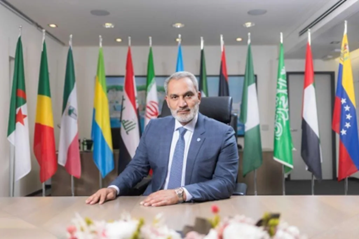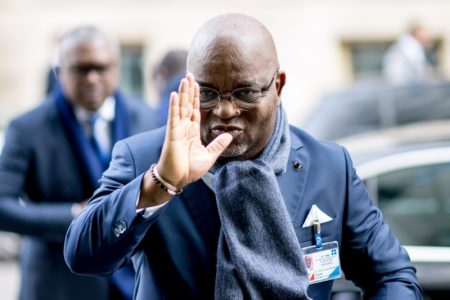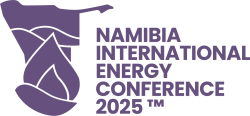
Cape Town, South Africa — The upcoming African Energy Week (AEW): Invest in African Energy conference – Africa’s premier event for the energy sector, taking place from 4–8 November in Cape Town – will host an OPEC-Africa Roundtable, uniting key stakeholders from OPEC and African oil producers to engage in collaboration and strategic dialogue on best practices to stabilize the global oil market.
The return of the OPEC-Africa Roundtable at this year’s event underscores the strengthening ties between OPEC and Africa and is underpinned by Africa’s growing importance in global market dynamics.
This June, OPEC and its allies, including African producers such as the Republic of the Congo, Equatorial Guinea, Algeria, Libya, Gabon and Nigeria, agreed to extend oil production cuts through to September 2025.
The production cuts are designed to avoid oversupplying the global oil market, stabilize barrel prices, foster investment in both existing and new projects, and ensure revenue generation for producing countries. Efforts to maximize the stability of the global oil market by leveraging Africa’s 125 billion barrels of crude reserves will be unpacked during the roundtable.
AEW: Invest in African Energy is the platform of choice for project operators, financiers, technology providers and government, and has emerged as the official place to sign deals in African energy. Visit www.AECWeek.com for more information about this exciting event.
Global oil demand is expected to reach 116 million barrels per day (bpd) by 2045, according to OPEC. This highlights a strategic opportunity for both existing and emerging producers in Africa, and countries are already driving upstream developments to meet rising demand.
In April 2024, Nigeria – Africa’s biggest oil producer – unveiled its 2024 Licensing Round, offering 12 blocks for exploration.
The round aims to entice new investment into undeveloped blocks, specifically deep offshore assets. The launch followed the country starting operations at the TotalEnergies-operated Akpo West Field in February 2024, increasing daily output by 14,000 bpd.
The continent’s second largest producer is Libya, an OPEC member since 1962, with production measuring 1.21 million bpd in April 2024. The country has been rehabilitating 36 oil wells in the Messla and Sarir fields and has commenced several exploration campaigns with Spanish energy firm Repsol, Algerian National Oil Company (NOC) Sonatrach and energy major TotalEnergies. Libya aims to produce two million bpd within the next two to three years and plans to launch a new licensing round by the end of 2024 or early 2025.
Meanwhile, the Republic of the Congo – which became an OPEC member in 2018 – is undertaking a series of measures to boost investments and infrastructure developments across its upstream sector.
The country aims to increase output from the current 259,000 bpd to 500,000 bpd. Chinese energy company Wing Wah is developing the Banga Kayo block while energy major Eni is exploring conventional and deep offshore areas off the coast of Pointe-Noire. Eni inaugurated the Congo LNG project in 2023.
Additionally, earlier this year, TotalEnergies announced plans to invest up to $600 million to strengthen E&P activities in the country, including operations at the Moho Nord field which accounts for roughly half of the country’s total production.
Gabon is also driving upstream projects, leveraging its OPEC membership and strategic vision to increase production to 220,000 bpd. E&P company BW Energy kickstarted production at the DHBSM-1H well in the Hibiscus South exploration prospect in March, only five months after the discovery was made.
Independent oil and gas firms Perenco and VAALCO are implementing several drilling campaigns at the Hylia and Etame Marin fields. TotalEnergies is drilling in the Baudroie-Mérou Marine field and the China National Offshore Oil Company is exploring Blocks BC-9 and BCD-10.
In Equatorial Guinea, NOC GEPetrol signed a Production Sharing Contract (PSC) for Block EG-23 with independent E&P firm Panoro Energy, with plans to fast-track infrastructure development in the block and utilize the assets to drive the country’s oil market expansion. The company also signed PSCs with Chevron for Blocks EG-11 and EG-06.
“OPEC is committed to not only stabilizing global oil markets but supporting investment and development in Africa. For mature producers, the organization remains committed to strengthening supply-demand dynamics, while for emerging producers, stands ready to support as the industry grows. Going forward, OPEC will continue to play a crucial role in reinforcing Africa’s position in global energy matters,” stated NJ Ayuk, Executive Chairman of the African Energy Chamber.
The OPEC-Africa Roundtable builds on these developments to foster a collaborative approach to addressing industry challenges and seizing new opportunities in African oil. The roundtable will feature high-level speakers and key decision-makers, including OPEC Secretary General Haitham Al Ghais, alongside African energy ministers, top executives from major oil companies and leading industry experts. The Secretary General is expected to highlight investment opportunities in the African oil market while delving into strategies for balancing supply-demand worldwide.



